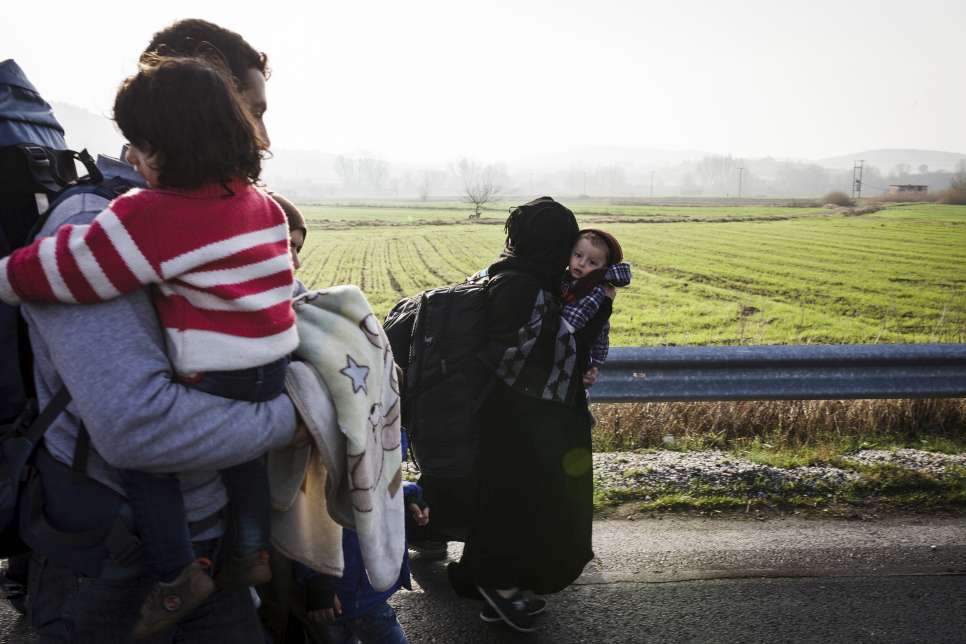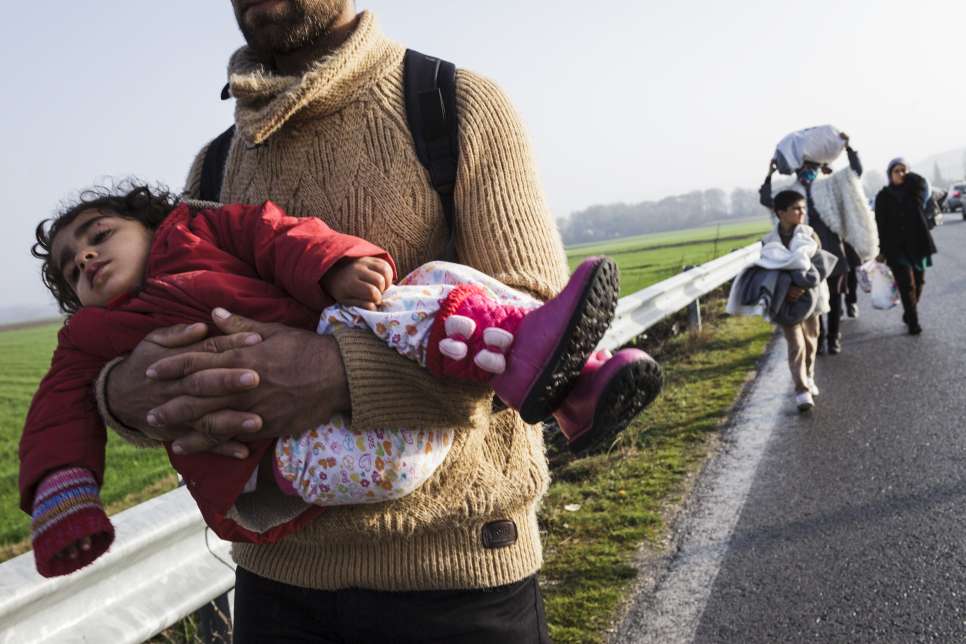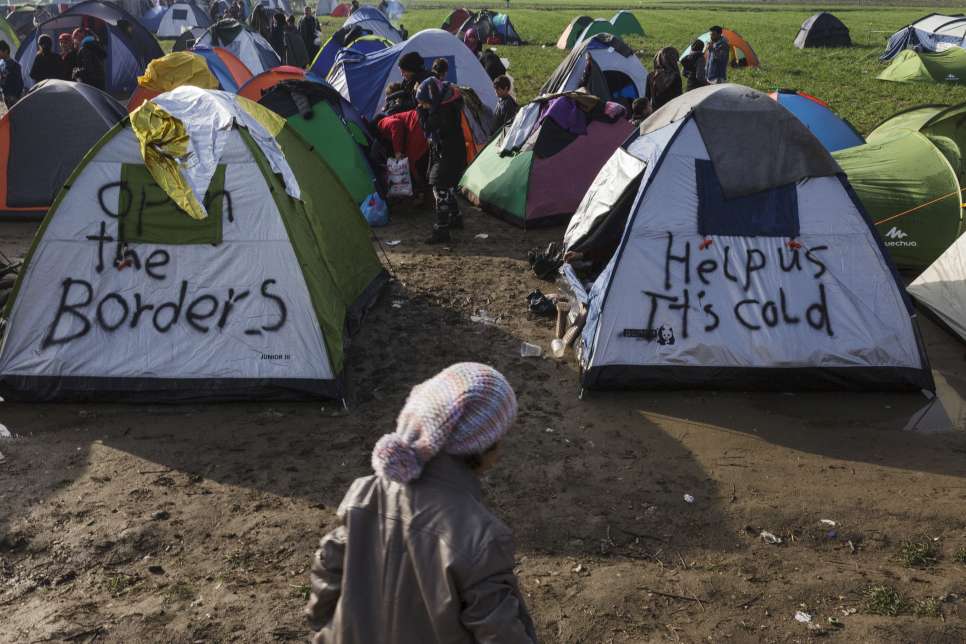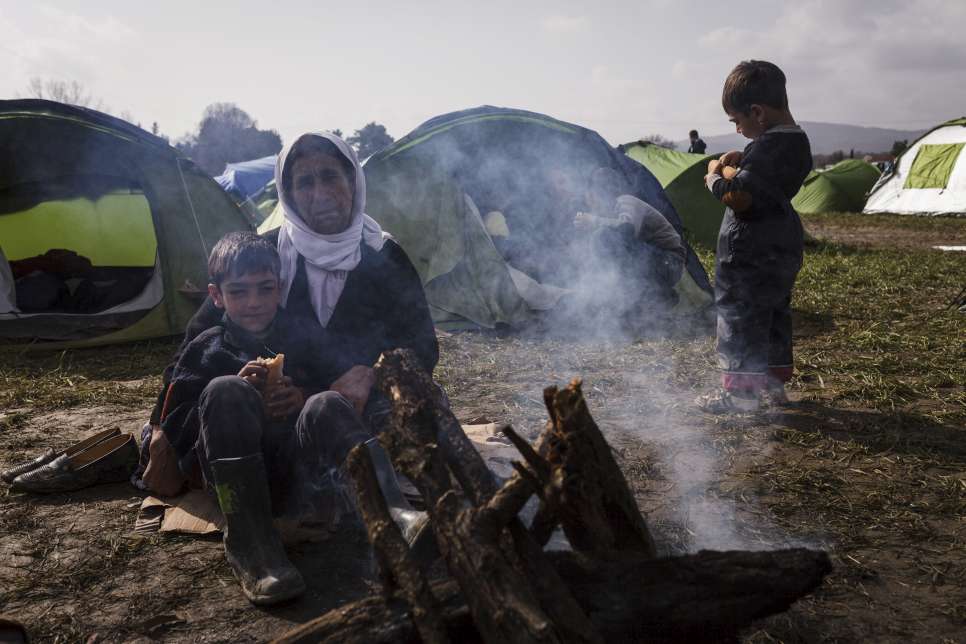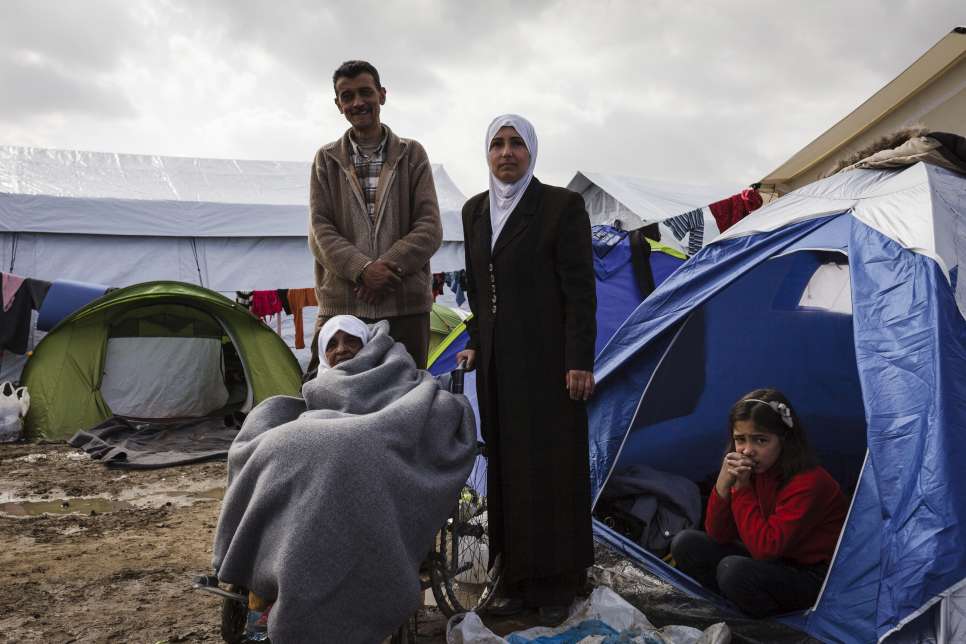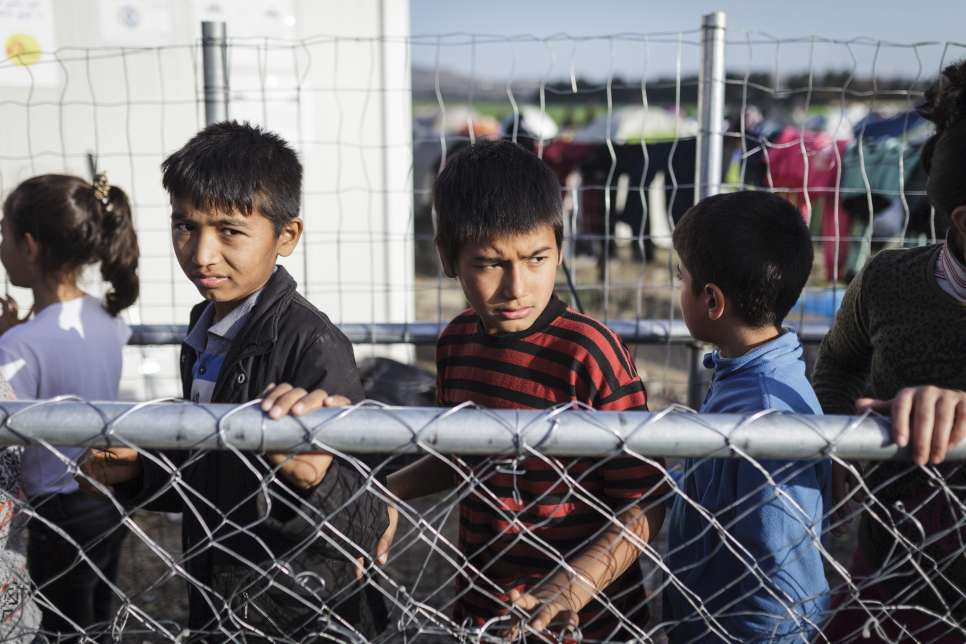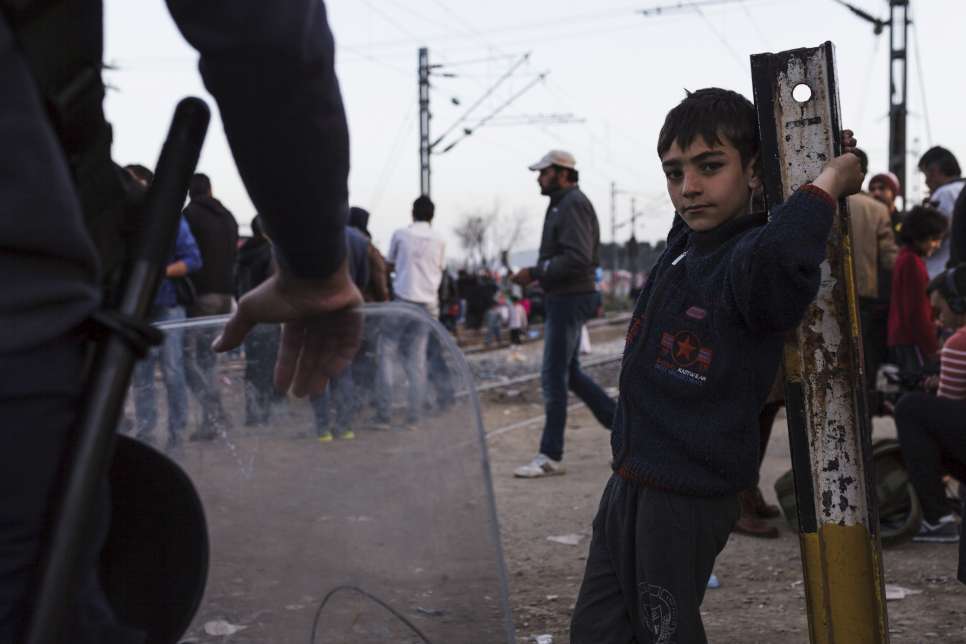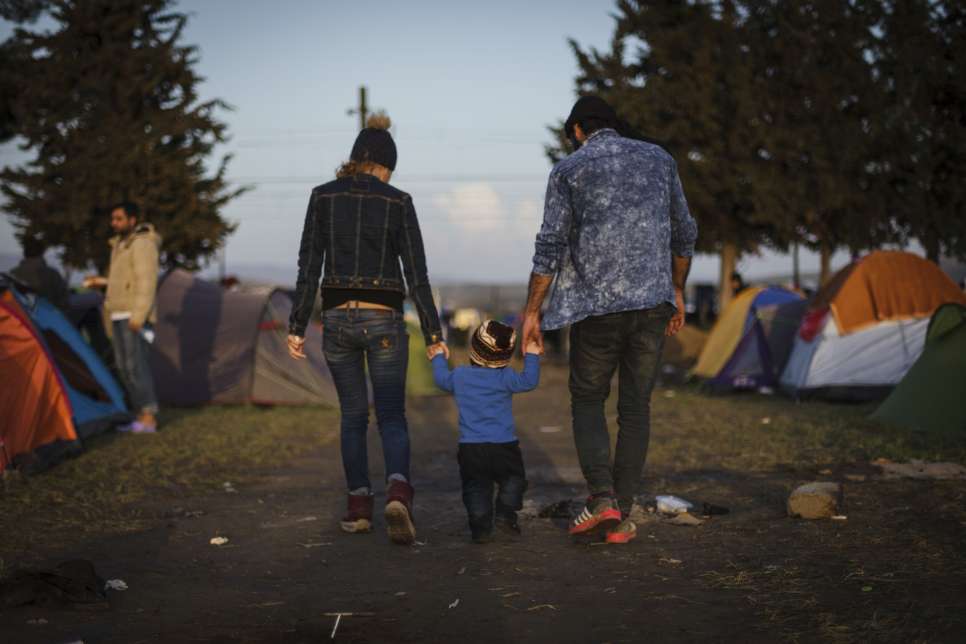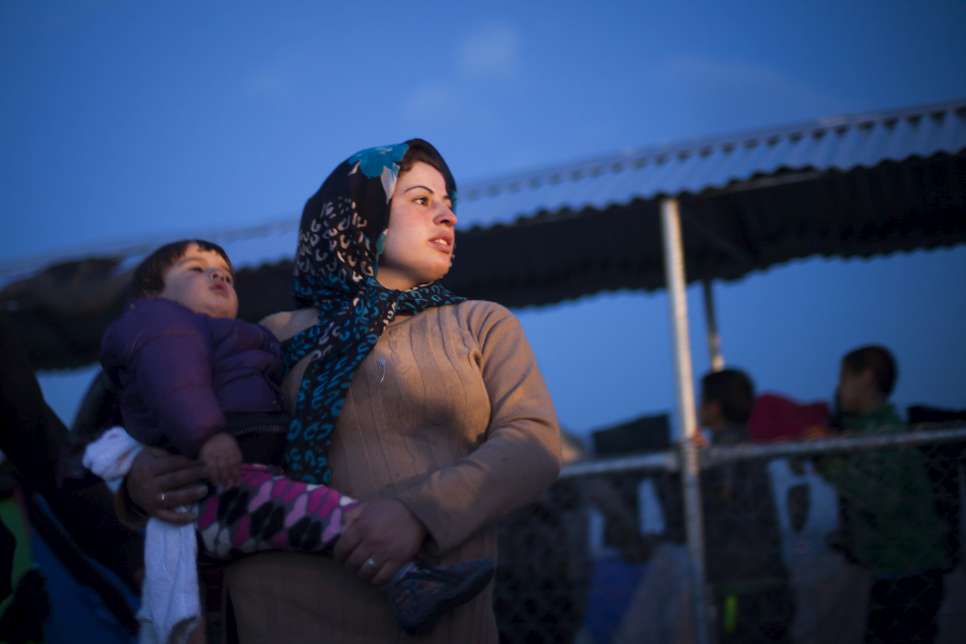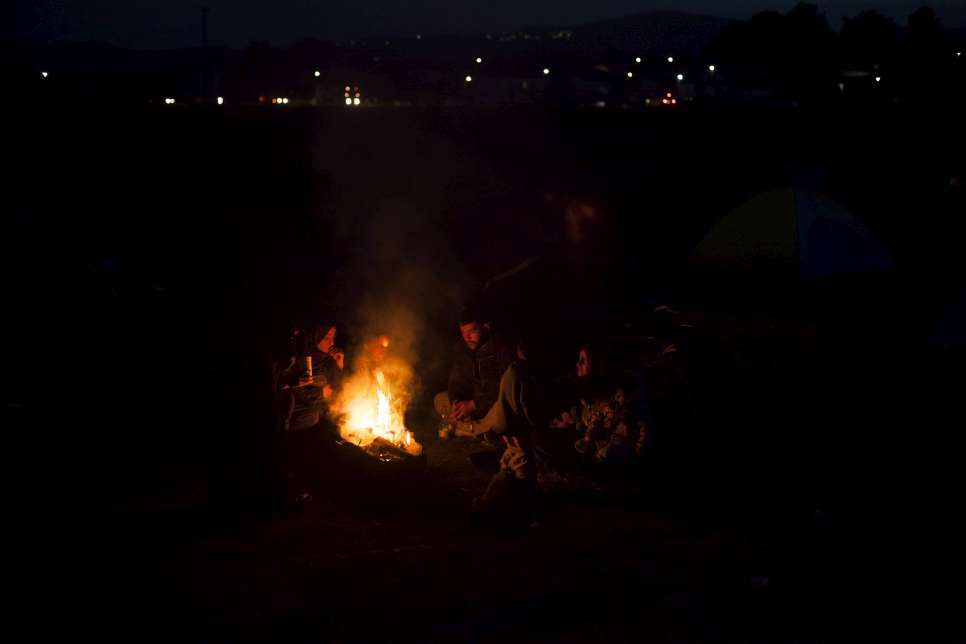By: Tania Karas | 4 March 2016
Thousands of refugees face an uncertain future in Greece after the Western Balkan route to Northern Europe has all but closed down. But more are still coming every day. The Former Yugoslav Republic of Macedonia now admits only a few hundred Syrians and Iraqis per day, creating an enormous backlog at the border crossing of Idomeni. The knock-on effect creates more bottlenecks at the port of Piraeus in Athens.
Even some of those with passports or official ID cards may not be able to cross. Afghans are barred completely. It is the latest in a series of restrictions imposed by Austria and several Balkan countries aimed at stemming the flow of refugees and migrants northwards where many say they want to go.
Earlier this week, UNHCR, the UN Refugee Agency, warned Europe faced an imminent humanitarian crisis, largely of its own making, following a rapid build-up of people in already over-stretched Greece. In Greece this week some 30,000 people are in need of assistance and accommodation – over one third of whom are here in Idomeni.
On a recent visit to Greece, UN High Commissioner for Refugees Filippo Grandiexpressed concern at border closures and the inability of European countries to face the refugee crisis with generosity and unity.
But he also said UNHCR and the Greek authorities must start planning for a situation where more than a few thousand people are stuck in Greece.
“Europe has successfully dealt with large-scale refugee movements in the past, and can deal with this one, provided it acts in a spirit of solidarity and responsibility sharing,” said High Commissioner Grandi. “There is really no other option than working together to solve this.”
-
A family from Aleppo, Syria, walks towards the village of Idomeni, near the border between Greece and the Former Yugoslav Republic of Macedonia. Thousands of refugees who had hoped to push on to northern Europe are backed up here since borders were tightened in recent weeks.
The Greek authorities have responded with the military setting up three camps near Idomeni with a capacity of 12,500. UNHCR is supplementing the Greek response effort, but much more needs to be done. UNHCR is also urging that those eligible, like this family, should apply for relocation as an alternative to the dangerous onward voyage through the Balkans.
UN High Commissioner for Refugees Filippo Grandi has warned border closures in the Balkans may create an enormous and potentially critical refugee bottleneck in Greece. © UNHCR/Achilleas Zavallis
-
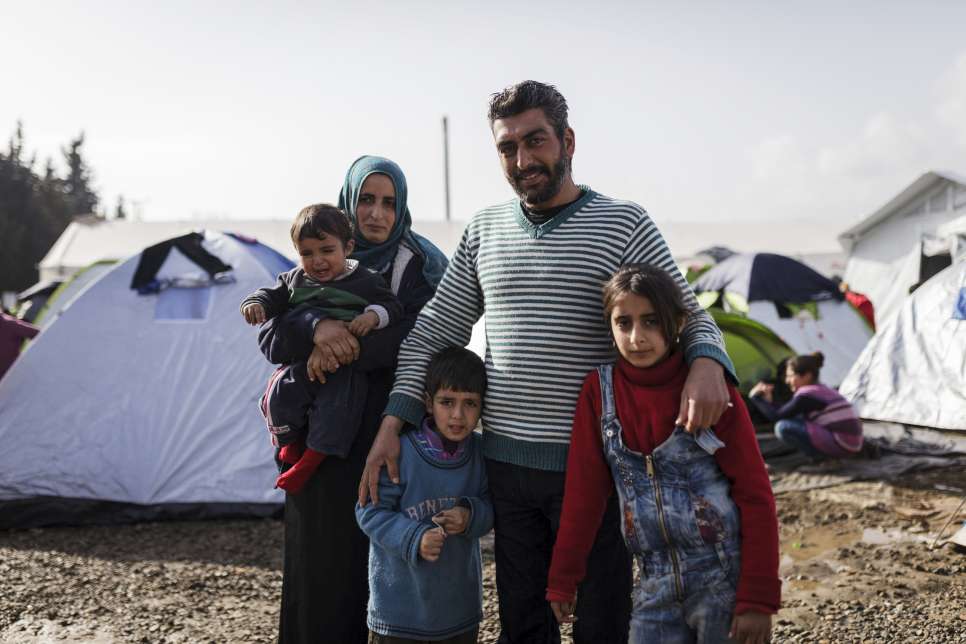
In the meantime, the human cost remains high.
"How can we feed our children We ran out of money 10 days ago," says Zooda as she tries to calm her 10-month-old son, Mahmoud, who is crying from hunger. Travelling with her husband, Mohammed Al-Ahmad, and her three children, Zooda is tired after a rainy night in a makeshift camp near the village of Idomeni, on the border between Greece and the Former Yugoslav Republic of Macedonia. The family fled their hometown, Dara'a, in January, along with 50 members of their extended family. The entire group is staying in tents at Idomeni.
UNHCR is urging the Greek authorities with the support of EU Member States to strongly reinforce its capacity to register and process asylum seekers. The international protection agency wants to see far more resettlement and humanitarian admission, family reunification, private sponsorship, and humanitarian and refugee student and work visas. All of these instruments it says serve to reduce demand for people smuggling, onward movements, and dangerous boat journeys. © UNHCR/Achilleas Zavallis
-
A Kurdish refugee from Aleppo, Syria, carries his young daughter while walking towards the border between Greece and the Former Yugoslav Republic of Macedonia.
Earlier this week, UNHCR, the UN Refugee Agency, warned Europe faced an imminent humanitarian crisis, largely of its own making, following a rapid build-up of people in already over-stretched Greece. "With governments not working together despite having already reached agreements in a number of areas, and country after country imposing new border restrictions, inconsistent practices are causing unnecessary suffering," UNHCR spokesperson Adrian Edwards said.
This week refugees and migrants in Greece needing assistance and accommodation soared to 30,000. Around 13,000 of these are here at Idomeni. "The crowded conditions are leading to shortages of food, shelter, water and sanitation. Tensions have been building, fuelling violence and playing into the hands of people smugglers," Edwards stressed. © UNHCR/Achilleas Zavallis
-
Thousands of refugees, mainly from Iraq and Syria, are now camping at this makeshift camp near Idomeni, on the border between Greece and the Former Yugoslav Republic of Macedonia.
The Greek authorities have responded with the military setting up three camps near Idomeni with a capacity of 12,500. UNHCR is supplementing the Greek response effort, but much more needs to be done.
Among the most urgent of these when it comes to Greece is the need for better contingency planning, with increased accommodation capacity and other support. To prevent a further deterioration of conditions throughout Greece, more resources and better coordination are critical. © UNHCR/Achilleas Zavallis
-
Barfi Halil, a Yazidi from Sinjar in Iraq, sits beside a fire with her grandchildren. The 63-year-old grandmother has spent the past week in the fields of Idomeni, sharing a small camping tent with her son, his wife and their five children, one of whom has severe developmental disabilities.
The family fled Sinjar in 2014, after militants laid siege to the area. They first went to a camp for displaced people outside Dohuk, in the Kurdistan region of northern Iraq. They then sought safety in Europe. The family worries that new border restrictions will prevent them from crossing the border into the Former Yugoslav Republic of Macedonia.
"We Yazidis have suffered a lot," Barfi said. "We can't go back home." © UNHCR/Achilleas Zavallis
-
"Waiting has been the most difficult part, more difficult than the boat."
Esmail Shreki worries about his elderly mother, Fatima, who sits in a wheelchair beneath a mound of blankets. Its wheels are caked in mud. The previous night's rains left puddles around the tent where they have been sleeping for the past 10 days as they wait to cross the border into the Former Yugoslav Republic of Macedonia.
Esmail, who was a mechanical engineer in Syria's Idlib province, fled to Europe with his mother, his wife and four children after an air strike hit their home. Esmail carried his mother on his back at several points along the way. Now the family wait their turn to cross, with little information on when they will be allowed to move forward. © UNHCR/Achilleas Zavallis
-
Children wait in line for food at the Idomeni border crossing between Greece and the Former Yugoslav Republic of Macedonia. People join long queues that can stretch for hundreds of meters in order to get a simple sandwich. The latest figures show that 36 per cent of the refugees arriving in Europe in 2016 are children, and many of them have been separated from their parents. © UNHCR/Achilleas Zavallis
-
A young boy from Syria waits near Idomeni on the border between Greece and the Former Yugoslav Republic of Macedonia.
As part of a joint endeavour to step up protection for the growing numbers of children and others with specific needs arriving in Europe, UNHCR, the UN Refugee Agency, and UNICEF are setting up special support centres for children and families along the most frequently used migration routes in Europe.
Twenty Child and Family Support Hubs, to be known as "Blue Dots," will provide a safe space for children and their families, vital services, play, protection and counselling in a single location. © UNHCR/Achilleas Zavallis
-
Two Syrian refugees try to maintain a sense of normalcy by taking their young boy for a stroll in the makeshift camp near Idomeni, Greece.
© UNHCR/Achilleas Zavallis
-
A man carries his young son on his shoulders at the Idomeni border station.
© UNHCR/Achilleas Zavallis
-
An Iraqi refugee holds her son at the makeshift camp near Idomeni. © UNHCR/Achilleas Zavallis
-
A family of refugees sits around a fire to keep warm near the village of Idomeni, on the border between Greece and the Former Yugoslav Republic of Macedonia.
© UNHCR/Achilleas Zavallis

